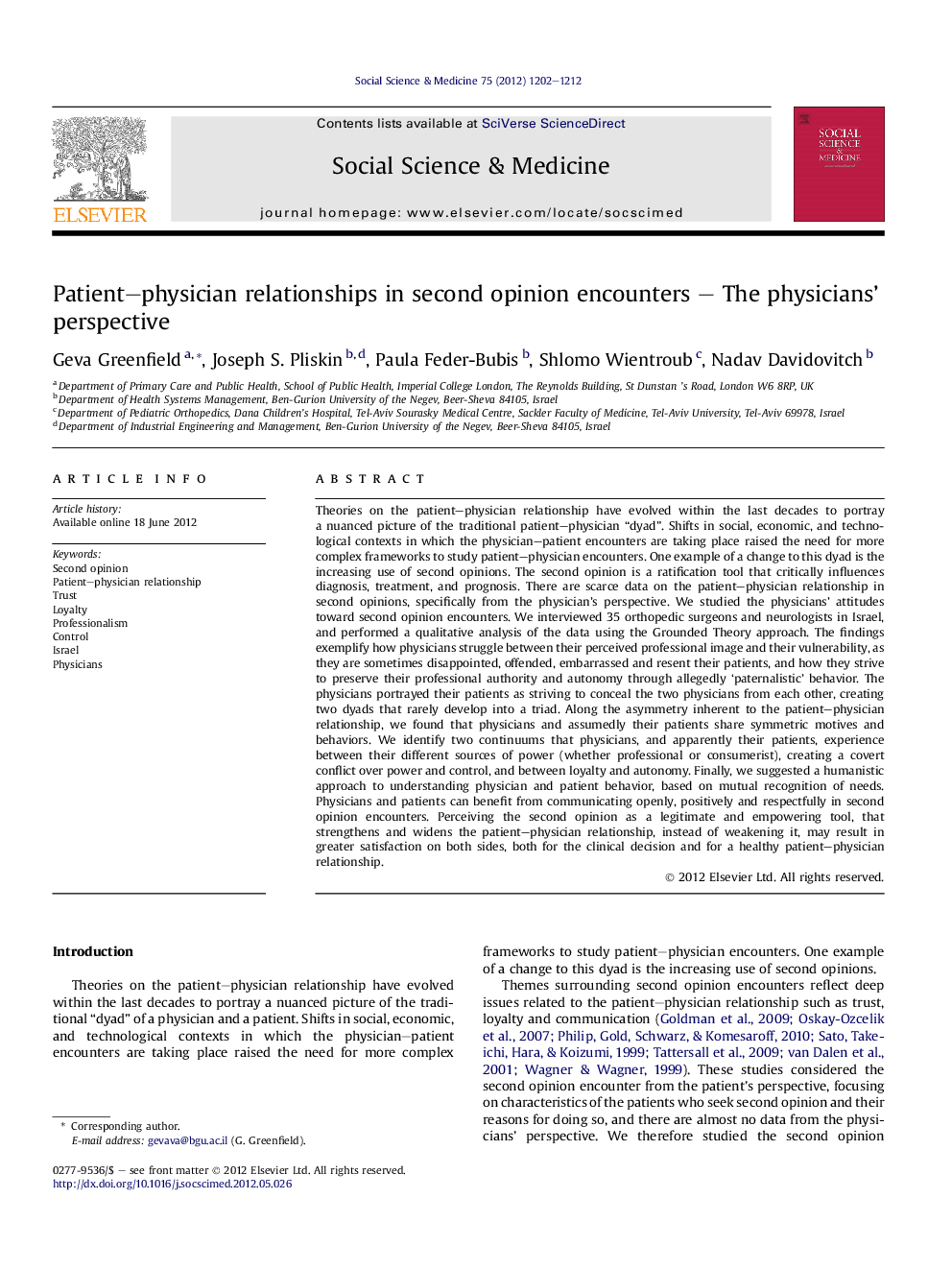| کد مقاله | کد نشریه | سال انتشار | مقاله انگلیسی | نسخه تمام متن |
|---|---|---|---|---|
| 952463 | 927516 | 2012 | 11 صفحه PDF | دانلود رایگان |

Theories on the patient–physician relationship have evolved within the last decades to portray a nuanced picture of the traditional patient–physician “dyad”. Shifts in social, economic, and technological contexts in which the physician–patient encounters are taking place raised the need for more complex frameworks to study patient–physician encounters. One example of a change to this dyad is the increasing use of second opinions. The second opinion is a ratification tool that critically influences diagnosis, treatment, and prognosis. There are scarce data on the patient–physician relationship in second opinions, specifically from the physician’s perspective. We studied the physicians’ attitudes toward second opinion encounters. We interviewed 35 orthopedic surgeons and neurologists in Israel, and performed a qualitative analysis of the data using the Grounded Theory approach. The findings exemplify how physicians struggle between their perceived professional image and their vulnerability, as they are sometimes disappointed, offended, embarrassed and resent their patients, and how they strive to preserve their professional authority and autonomy through allegedly ‘paternalistic’ behavior. The physicians portrayed their patients as striving to conceal the two physicians from each other, creating two dyads that rarely develop into a triad. Along the asymmetry inherent to the patient–physician relationship, we found that physicians and assumedly their patients share symmetric motives and behaviors. We identify two continuums that physicians, and apparently their patients, experience between their different sources of power (whether professional or consumerist), creating a covert conflict over power and control, and between loyalty and autonomy. Finally, we suggested a humanistic approach to understanding physician and patient behavior, based on mutual recognition of needs. Physicians and patients can benefit from communicating openly, positively and respectfully in second opinion encounters. Perceiving the second opinion as a legitimate and empowering tool, that strengthens and widens the patient–physician relationship, instead of weakening it, may result in greater satisfaction on both sides, both for the clinical decision and for a healthy patient–physician relationship.
► Physicians described how physicians and patients perceive second opinions as threatening their relationship.
► Physicians described how such concerns drive patients to conceal previous opinions.
► Physicians struggle between professional image and personal vulnerability, striving to preserve professional autonomy.
► Physicians described similar behaviors among physicians and patients, but also conflicts between loyalty and autonomy.
► Physicians and patients can benefit from perceiving second opinions as legitimate and strengthening their relationship.
Journal: Social Science & Medicine - Volume 75, Issue 7, October 2012, Pages 1202–1212